
views
Avoiding Triggers to Masturbate
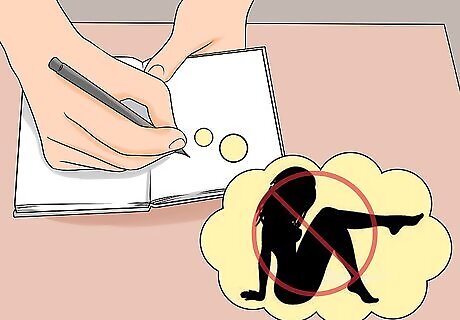
Identify your triggers to arousal and avoid them. Triggers to masturbation can be the thoughts, feelings, behaviors, and situations that result in arousal or the urge to masturbate. Triggers vary in each person, but can include looking at attractive people, body parts, clothing, animals, or inanimate objects. For some people, triggers can include sounds, smells, or other sensory or thought stimulation. If you work to cope with or reduce these triggers, you may be less likely to act on your impulse (by reducing the trigger) to masturbate. Make a list (either mental or on paper/the computer) of all of the things that trigger you to engage in masturbation. This list might include things like: looking at pornography, thinking about sex or fantasizing, looking at sex-related items, increased stress or anxiety, or difficulty sleeping.
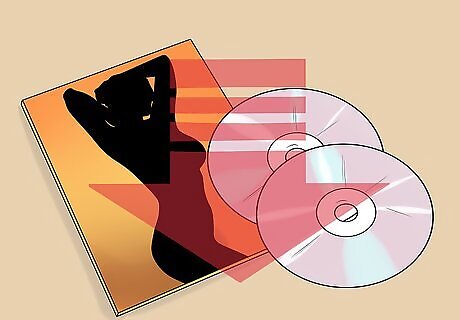
Limit your exposure to pornographic material. There are some triggers that you can control yourself, such as looking at objects, pictures, or videos that make you feel aroused. Removing these items can drastically decrease your unintentional arousal, leading to a decrease in your impulse to masturbate. Pornographic materials may include: DVDs, magazines, pictures, posters, sculptures, and romance novels. Avoid driving by or entering triggering places such as: strip-clubs, brothels, or streets where prostitutes frequently hang out.
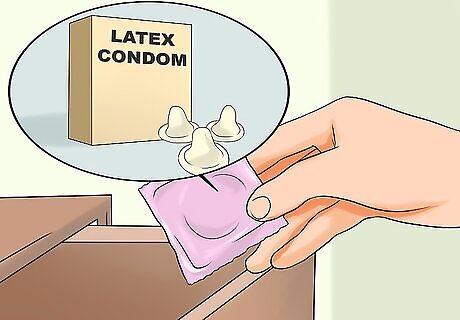
Stash sex-objects. Not only will pornographic materials naturally lead to arousal, but any object that reminds you of sexual intercourse or masturbation may lead to arousal and masturbation. Remove or hide sex-objects that are triggering for you. These might include: condoms, lubrication (jelly or lotions), vibrators, dildos, sexy outfits, and anything else that you might have that could lead to thoughts of masturbation.
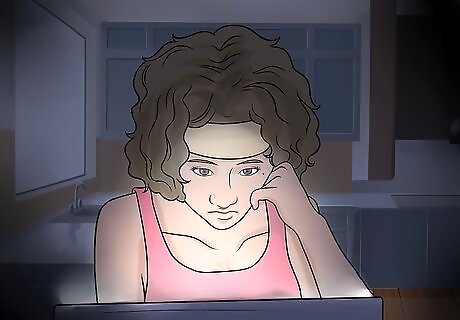
Limit your internet use. Some individuals have difficulty with watching pornography on the internet. This can be very arousing for some and can lead to difficulty abstaining from masturbation. You can put parental controls on your computer or television through your internet/cable service which limits your ability to enter pornographic sites. Discuss this with your internet or cable provider. You don’t have to admit your issue to them because many people with children use these services to restrict their children from going to certain sites or television channels.
Distracting Yourself

Do something else. Try to be as busy as possible during the day and night. Keep your mind focused on activities that do not stimulate your sexual fantasies. This will vary in each person. Some examples of positive or distracting activities you can try are: playing video games, watching a movie (non-sexual), going for a walk, going window shopping, playing with a pet, reading a book, playing an instrument, creating art (painting, coloring, sculpting), and writing in a journal.
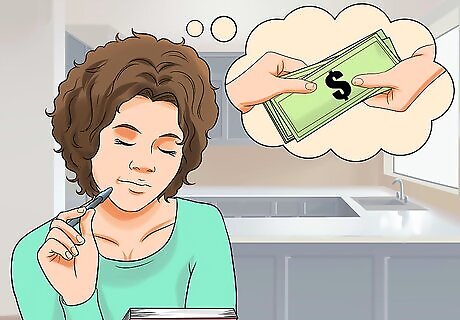
Focus on your responsibilities. Our obligations can help us focus on what is necessary (money, food, shelter, education, etc) rather than what is not essential for daily life (masturbation). Having less free-time overall can decrease your desire and actual ability to masturbate because it becomes an impractical part of your day. If you don't have time for it, you might not do it. Make a list of the things you need to complete each day. This list might include things like: complete work or school projects, go shopping, clean bedroom, pay bills, practice the guitar, and exercise. Keep this list handy. When you have the urge to masturbate, look at your list and tell yourself, “I don’t have time to masturbate right now. I need to get all of this done today.” Get a job if you are old enough. A job is a good distraction and can help you structure your schedule. Not to mention you'll have money to spend on activities that can distract and entertain you!
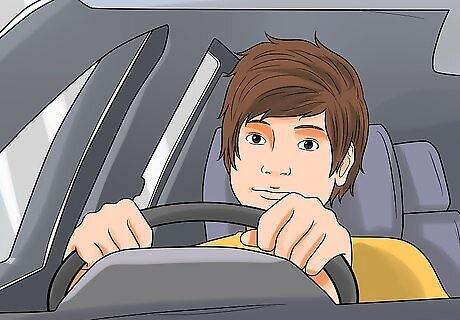
Change your environment. Sometimes your environment (being home alone, or in your bedroom) can increase your desire to masturbate. Since masturbation in public is most likely inappropriate and illegal, changing your environment may help to reduce your urge to masturbate. If you have the urge to masturbate, take a walk outside or go for a drive. If you are in public it may prevent you from masturbating. Additionally, it can take your mind off of your desire to masturbate. Ask a friend to hang out or spend time with your family. It will likely limit your ability to masturbate if you are in front of other people.
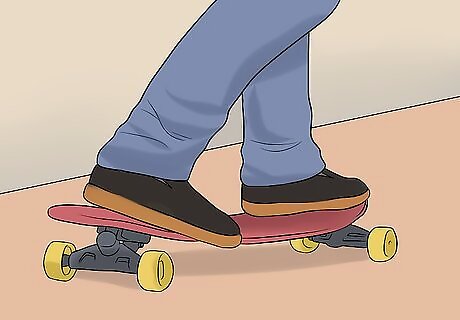
Exercise. Exercise may help reduce sexual desires. If you masturbate to reduce stress at times, exercise is a healthy alternative because it releases endorphins in your brain which make you feel happier and less stressed. Try fun aerobic or exercise activities such as: skateboarding, swimming, hiking, biking, bowling, jumping-rope, dancing, aerobics, or yoga.
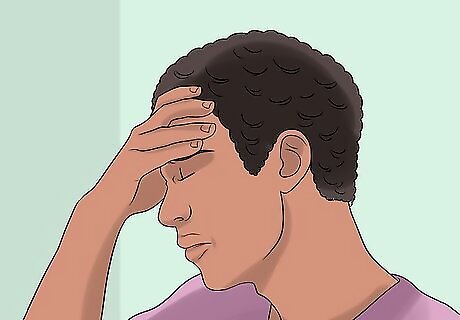
Think about the negative effects. One way to distract yourself is to remind yourself of or visualize the possible negative effects of excessive masturbation such as: impaired sexual function, depression, dissatisfaction in relationships, high blood pressure, testicular pain or discomfort (for men), and swollen and painful prostate. Excessive vibrator use in women may result in side effects such as genital numbness, irritation, or cuts or tears. Identify the personal negative consequences of your habit of masturbating. This list might include things like difficulty completing work or school tasks, and disruption in personal relationships.
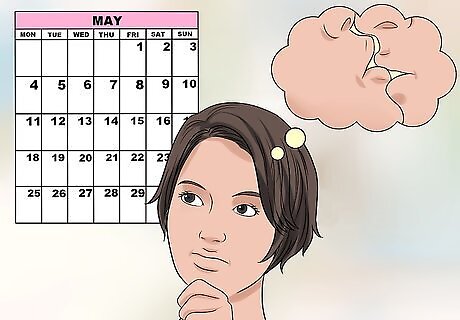
Set limits. If you really do not want to masturbate, try to focus on avoiding it when it is inappropriate to do so. This includes when you and your spouse/partner have planned intercourse soon, when you are not totally in private, when you need to be productive doing something else, or when you must save sperm for a medical test. Set goals that are specific to your personal needs. Some individuals may want to avoid masturbation altogether for religious or cultural reasons, while others may want to reduce the amount of time they spend masturbating overall. It is easy to lose your sense of time while masturbating. Be sure of how much time you have until your next obligation, such as work, school, etc. If you do not have enough time until your next obligation, consider putting off masturbation until later.
Controlling your Sleep Environment
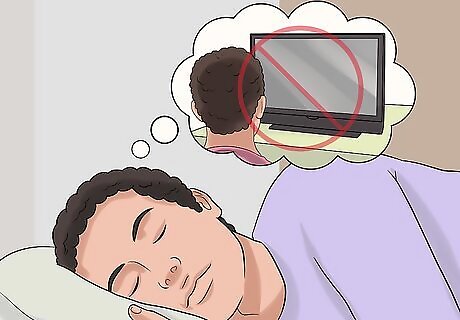
Lie down in bed only for sleep. Since your bedroom and bed are likely the most frequented areas for masturbation, it is important to control this environment – especially in regards to sleep and what you choose to do in your bedroom. Do not spend time in bed doing other activities such as reading, watching TV, or using the computer. Stay in a standing or sitting position the remainder of the time (during the day).
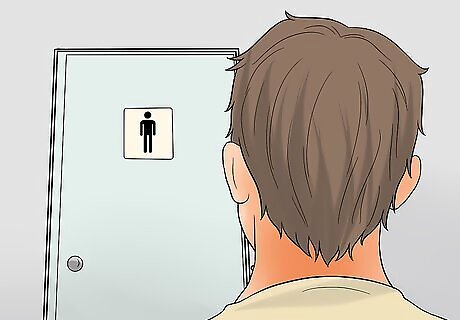
Keep your bladder as empty as possible. The urge to urinate can be mistaken by the body as the urge for sex/masturbation. Go to the bathroom before you go to sleep at night and immediately when you wake up in the morning. Even if you feel the slightest urge to urinate, relieve yourself as soon as possible.
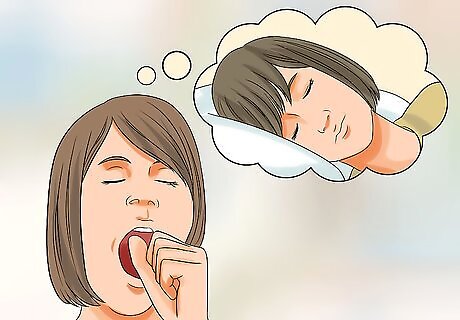
Go to sleep when you are really tired. This way, you will fall asleep quickly after lying down in bed and not spend time in bed trying to fall asleep. Drink a glass of milk before bed if necessary to help induce sleep. Go to bed early and wake up early if you can. Avoid staying up too late in the night; this can lead to boredom and increase the likelihood of masturbation. If you have trouble sleeping at night and use masturbation as means for relaxation, try deep-breathing instead. Simply breathe deeply and slowly in through your nose and out through your mouth until you fall asleep.
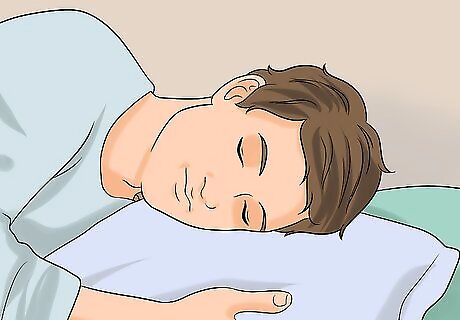
When you sleep, lay on your side. This may help to reduce your urge at the time because you are less likely to become aroused by rubbing up on something. Besides, most masturbation occurs either in a supine (lying on your back) or prone (lying on your belly) position.
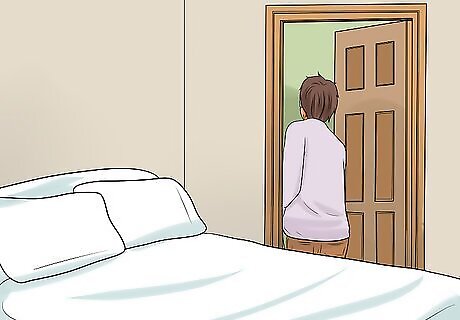
Get out of bed immediately in the morning. When you wake up in the morning at the set time, get out of bed as soon as possible and avoid lying in bed awake. Such is a time when masturbation is likely to occur.



















Comments
0 comment